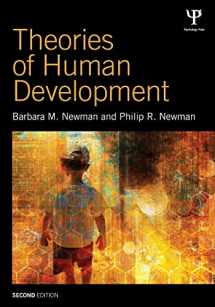
Theories of Human Development
Book details
Summary
Description
Key human development theories that continue to guide research and practice are examined in this engaging text. Ten key theories are grouped into three families - those that emphasize biological systems, environmental factors, and those that reflect an interaction between the two. This organization enhances students’ ability to evaluate, compare, and contrast theories both within and across families. Each family is introduced with an overview of their unique perspectives and the rationale for grouping them together. Discussion of each theory includes the cultural/historical context during the theory’s development, its key concepts and ideas, extensions of the theory in contemporary work, an example showing a modification of the theory, an application of how the theory is used to inform practice, and an analysis of how the theory answers 6 basic questions that a human development theory should address. Each chapter includes an overview of the strengths and weaknesses of the theories to facilitate comparisons. Theories that have a clear lifespan focus along with cases and examples that address issues across the lifespan are included
The second edition features:
-A new chapter on bioecological theory that highlights the increased use of this theory in the development of family, school, and community intervention programs.
-A new epilogue that examines the same case via each of the ten theories illustrating their similarities and differences and how these ideas cast a unique light on a common situation.
-New opening cases that bring theory to life along with narrative that links the case to the chapter’s concepts, guiding questions that help students compare theoretical perspectives, critical thinking questions that focus on using the theory to interpret the case and personal life experiences, and recommended resources that extend students’ understanding.
-More examples from various disciplines that address topics students are likely to encounter as professionals.
-A new glossary that defines the boldfaced key terms.
-Enhanced website at www.psypress.com/9781848726673 that provides instructors with a test bank, Power points, discussion questions and activities, additional cases with questions, teaching notes for using the book with various types of majors, and a conversion guide outlining changes to the new edition and students with key terms with hot links to their definitions, chapter summaries and outlines, and additional resources for further study.
-Updated research and applications highlight the latest scientific developments.
Ideal for advanced undergraduate or beginning graduate courses in theories of development, lifespan or child development taught in psychology, human development, family studies, education, and social work.


We would LOVE it if you could help us and other readers by reviewing the book
Book review



